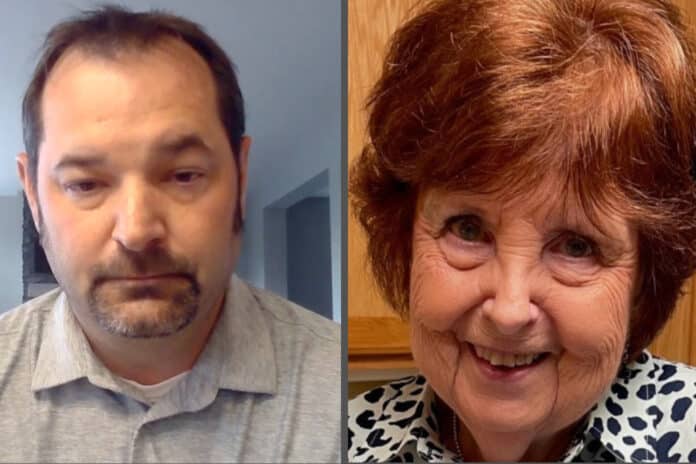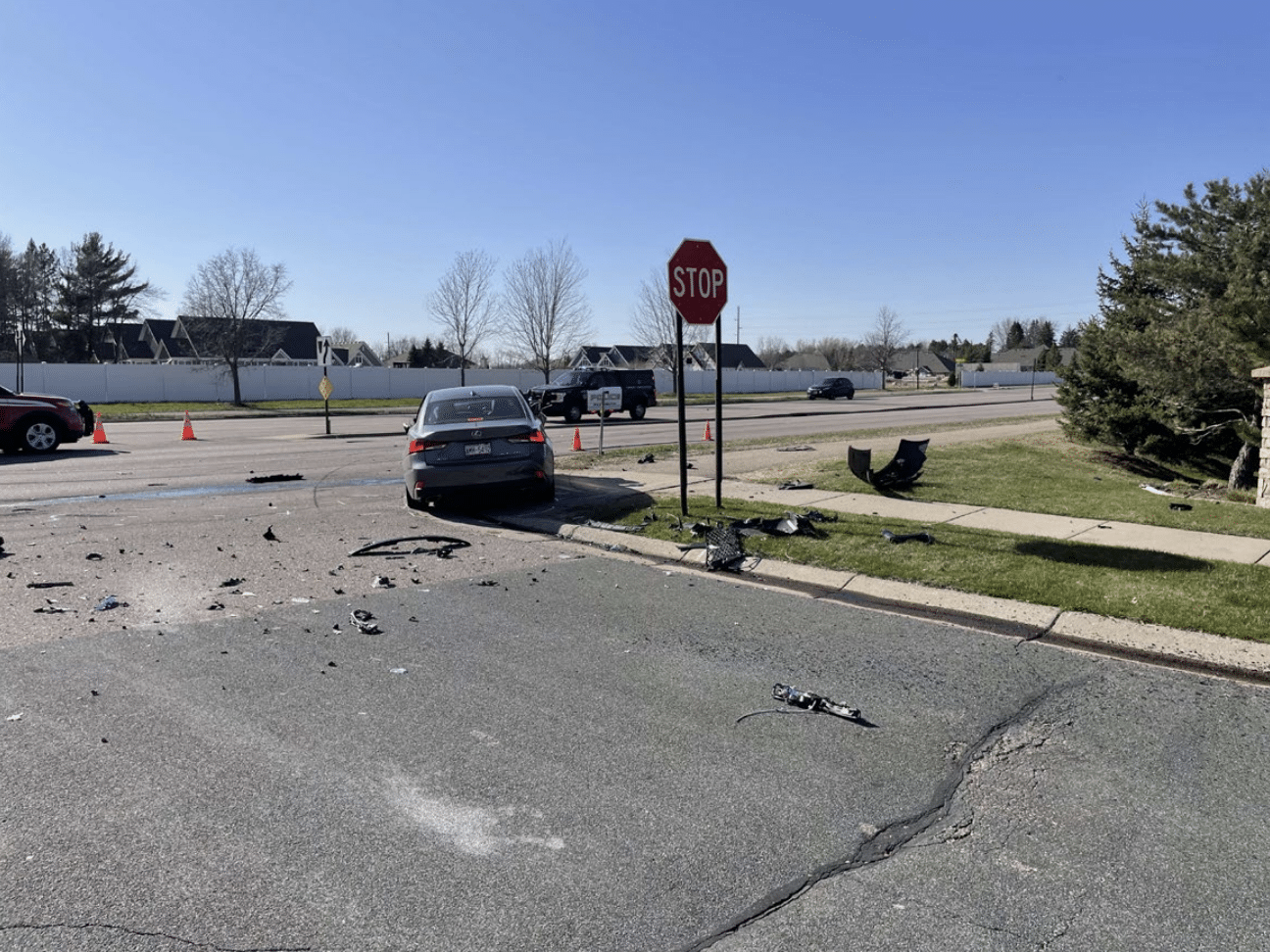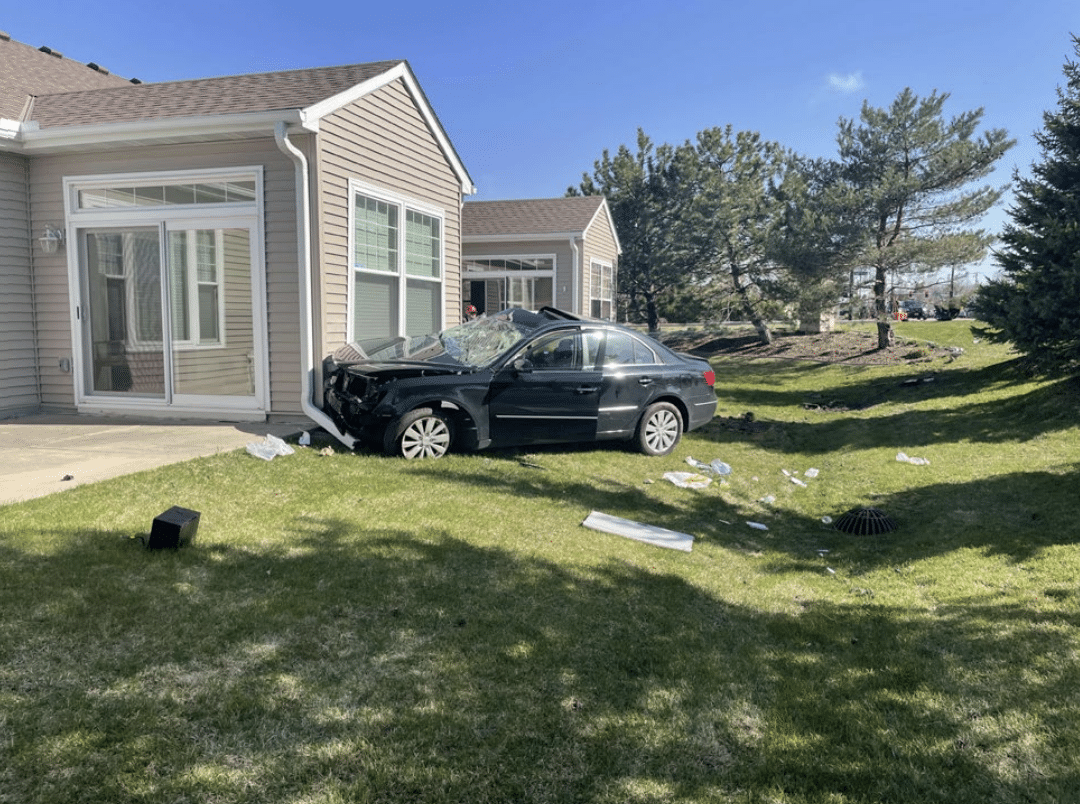
Matt Whalen joined Liz Collin Reports for an update on his family’s effort to change vehicular homicide laws two years after the tragic death of his beloved grandmother, Sandy Wetterlind, on May 6, 2022.
Wetterlind was killed when Christopher Keyes — a repeat speeding offender driving without a license — was traveling over 90 mph and slammed into her car, as court documents indicate. Keyes was driving at more than twice the posted speed limit and the impact sent Wetterlind’s car down an embankment into a townhouse.

A repeat speeding offender driving 90 mph without a license
After the tragic crash that killed his grandmother, Whalen learned that Keyes shouldn’t have been driving at all: Keyes did not have a valid Minnesota driver’s license and had several speeding-related offenses in the years before the crash.
Whalen explained that his grandmother “was actually bringing donuts back to her husband, they lived in a community right next door … unfortunately she didn’t make it back …”
Keyes had a revoked license and was charged with criminal vehicular homicide by the Hennepin County Attorney’s Office.

But less than a month after the tragic crash, court documents show that Keyes was once again speeding 88 miles an hour in a 60 mile an hour zone.
In talking about the lack of accountability, Whalen pointed out that Keyes had “probably about seven or eight speeding convictions and then also some no insurance related convictions.”
“It blows the minds away of us as a family, not understanding — you already killed somebody. You need to stop driving,” Whalen said.
As Whalen pointed out, just months after the fatal crash, Keyes’ license was reinstated.
Family watches as killer drives by ‘with no accountability’
Regarding the vehicular homicide case, Whalen said Keyes was sentenced to a year in the workhouse and released about eight months later. But Whalen explained how that wasn’t the worst of it: Keyes lives just a block away, which has been especially upsetting to the Whalen family.
“Due to the fact that he lives a block away from our family, watching him drive by free and with no accountability — I don’t understand the laws and why we haven’t figured that out yet. Why does it take a death to make somebody stand up to say, hey, we need to make a difference here and make a change in our laws?” Whalen said.
Whalen’s family was working with the Hennepin County Attorney’s Office, under the direction of Mary Moriarty.
“It’s very, very crazy to think about it that way that she (Moriarty) was dead set to bring a state trooper to trial and actually take funding to bring a trooper to trial and then drop all those charges against the state trooper. I don’t know why she didn’t reach out and get some more funding to take Christopher Keyes to trial,” Whalen said.
Given the circumstances and lack of justice and accountability, Whalen questioned, “Where’s the justice? I don’t think from the start that there was a positive feeling coming out of this case for us as a family. I always felt like there was an excuse train coming into town on why they couldn’t bring it to trial, why they couldn’t press further.”
Alpha News reached out to the Hennepin County Attorney’s Office for comment on this case but did not hear back.
Fighting to change vehicular homicide laws in Minnesota
Whalen also discussed what seems like a concerning loophole in Minnesota vehicular homicide and traffic laws.
Whalen shared a telling explanation he received from a state trooper who investigated the tragic crash: “the way the law is written … you can kill somebody with a car and get away with it,” Whalen recalled.

Having been through the tragedy, the investigation, and the court case, Whalen wants to see changes in Minnesota law.
Among them, Whalen explained, “the biggest change for our case would be implementing something with language that states something about speed. If you’re doing 30 miles per hour over the speed limit or 20 miles per hour. The major issue that the prosecutors were stating was basically that they weren’t able to prosecute him because there was no gross negligence because the law doesn’t state speed has anything to do with him driving over 100 miles per hour. That needs to be a big change in our state. Speeding is a big issue … and if you use your car as a weapon and you’re charged with criminal vehicular homicide, you should lose your right to drive.”
Similar questions about driving privileges were raised last year after Derrick John Thompson, the son of disgraced former Minnesota Rep. John Thompson, was charged with 10 felony counts of criminal vehicular homicide in the deaths of five women in June 2023.
Whalen says he’s been working with Rep. Kristin Robbins and hopes new legislation could be adopted next session.
Liz Collin
Liz Collin is a multi-Emmy-Award-winning investigative reporter, news anchor, and producer who cares about Minnesota. She is the producer of The Fall of Minneapolis and Minnesota v We the People documentary films, and author of the Amazon best-selling book, They’re Lying: The Media, the Left, and The Death of George Floyd. Her work has prompted important state laws. Yet perhaps most of all, Liz has been giving a voice to the truth—and helping others tell their stories—for more than 20 years.










